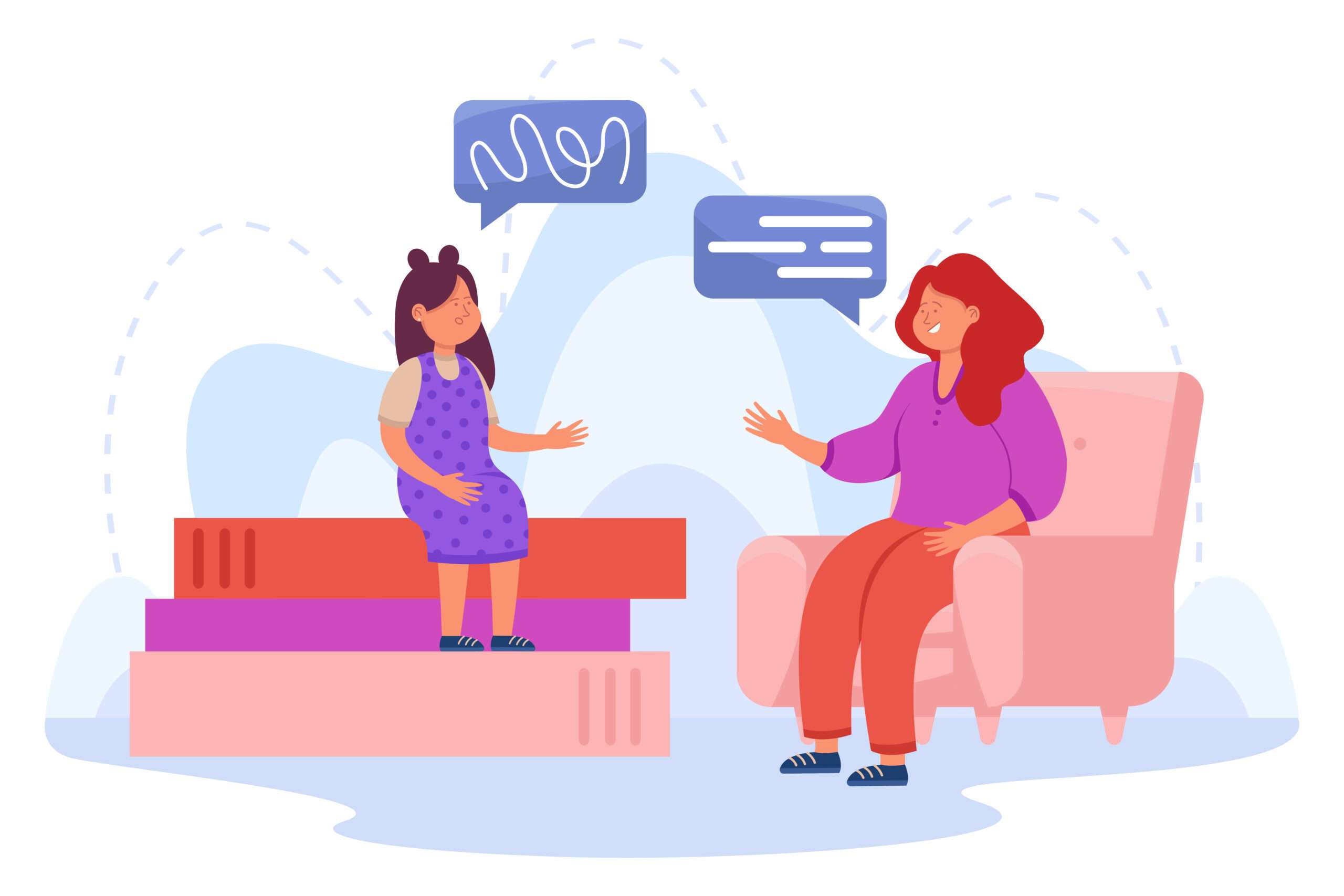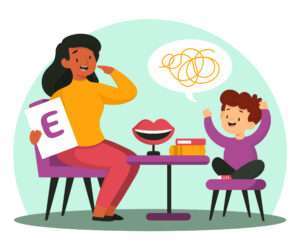 Learning a different language can be a tricky and worthwhile experience. But what happens when you struggle with a language disorder? Language disorders can make learning and using language difficult, often affecting a person’s ability to communicate effectively. Whether you are a native speaker or learning a new language, struggling with a language disorder can be frustrating and discouraging. However, with the right tools and techniques, it is possible to overcome language disorders and excel in language studies. In this blog post, we will explore the different types of language disorders, their causes, and how to overcome them to achieve success in language studies. We’ll also provide some practical tips and resources to help you overcome language disorders and become a confident and effective communicator in any language.
Learning a different language can be a tricky and worthwhile experience. But what happens when you struggle with a language disorder? Language disorders can make learning and using language difficult, often affecting a person’s ability to communicate effectively. Whether you are a native speaker or learning a new language, struggling with a language disorder can be frustrating and discouraging. However, with the right tools and techniques, it is possible to overcome language disorders and excel in language studies. In this blog post, we will explore the different types of language disorders, their causes, and how to overcome them to achieve success in language studies. We’ll also provide some practical tips and resources to help you overcome language disorders and become a confident and effective communicator in any language.
Understanding Language Disorders
Language disorders can be a significant barrier to excelling in language studies. These disorders can occur at any age and can have various causes, including brain injury, developmental delays, or genetic predisposition. Language disorders can affect both receptive and expressive language skills, making it difficult for individuals to understand spoken and written language or express themselves coherently.
Some common types of language disorders include aphasia, dysarthria, and apraxia. Aphasia is a disorder that affects a person’s ability to understand and use language after a brain injury. Dysarthria is a motor speech disorder that affects the muscles used for speech, making speech difficult to understand. Apraxia is a disorder that affects a person’s ability to coordinate the movements necessary for speaking.
It’s important to understand that language disorders are not the same as being bilingual or having an accent. Language disorders are a neurological condition that requires specialized treatment and support.
If you or someone you know has a language disorder, it’s essential to work with a qualified speech-language pathologist (SLP). An SLP can provide individualized therapy to improve language skills, develop strategies to compensate for language deficits, and support the person in achieving their language goals.
Understanding language disorders is the first step in overcoming them. With the proper support and treatment, individuals with language disorders can excel in language studies and achieve their full potential.
Identifying signs of language disorders
Identifying the signs of language disorders is crucial to overcoming them. If left untreated, language disorders can worsen and impact a person’s quality of life. Some common signs of a language disorder include difficulty with understanding or using language, trouble expressing thoughts or ideas, difficulty following directions, challenges with reading or writing, and struggles in social settings.
It’s important to note that language disorders can vary in severity and may impact different areas of language. Some people may struggle with grammar and syntax, while others may have difficulty with vocabulary and using the correct words to express their thoughts.
If you or someone you know is suffering any of these indications, it’s important to take professional assistance. A speech-language pathologist (SLP) can assess the individual’s language skills and provide a diagnosis. From there, the SLP can develop a treatment plan tailored to the individual’s needs and goals.
Early intervention is key in treating language disorders, so if you suspect that you or someone you know may have a language disorder, don’t hesitate to seek help. With the right support and resources, individuals with language disorders can excel in language studies and improve their overall quality of life.
Common language disorders
Language disorders can be defined as difficulties or impediments in understanding and using language. These disorders can manifest themselves in a number of different ways, from difficulty with pronunciation to problems with grammar and syntax. Some of the most common language disorders include aphasia, dyslexia, and stuttering.
Aphasia is a language disorder that is typically caused by damage to the brain, such as from a stroke or head injury. Those with aphasia may have difficulty speaking, understanding language, or both. Dyslexia, on the other hand, is a reading disorder that can make it difficult to read, spell, and write. Stuttering is a speech disorder that causes the affected individual to repeat or prolong sounds, syllables, or words.
It’s important to note that language disorders can impact individuals of all ages and backgrounds. These disorders can be caused by a number of factors, including genetics, brain injury or damage, and environmental factors. However, with proper diagnosis and treatment, those with language disorders can improve their language skills and achieve success in language studies.
Causes of language disorders
Language disorders can be caused by a variety of factors, both biological and environmental. Some of the most common causes include genetics, brain damage, hearing loss, and developmental delays.
Genetics can play a role in language disorders, as certain genetic mutations or abnormalities can affect the way the brain processes language. Brain damage, whether it be from a stroke, traumatic injury, or illness, can also result in language disorders. Hearing loss can also impact language development, as it can make it difficult for individuals to hear and distinguish sounds properly.
Developmental delays can also lead to language disorders, as some children may struggle with language acquisition due to underlying cognitive or developmental issues. Additionally, environmental factors such as a lack of exposure to language, a lack of stimulation in the home, and a lack of access to quality language therapy can also contribute to language disorders.
It’s important to recognize that there is no one-size-fits-all cause for language disorders, and each individual’s experience is unique. By understanding the potential causes of language disorders, individuals and their families can work towards finding the right treatment and support to help overcome these challenges and excel in language studies.
Diagnosis of language disorders
Diagnosis of language disorders is the first step towards overcoming them. It is important to identify the specific type of language disorder that an individual is experiencing in order to provide the most effective treatment. There are different types of language disorders, including expressive language disorder, receptive language disorder, and mixed receptive-expressive language disorder. Each of these disorders presents different symptoms and requires different treatment approaches.
Expressive language disorder is characterized by difficulty expressing thoughts and ideas through language, while receptive language disorder involves difficulty understanding spoken language. Mixed receptive-expressive language disorder is a combination of both expressive and receptive language disorders. In addition to these language disorders, there are also speech sound disorders and fluency disorders, such as stuttering.
Diagnosis of language disorders is typically done by a speech-language pathologist. This professional will assess the individual’s communication abilities and identify any areas of difficulty. The assessment may involve standardized tests, observation of the individual’s communication abilities in different settings, and interviews with family members or caregivers. Once a diagnosis has been made, the speech-language pathologist will develop a treatment plan that is tailored to the individual’s specific needs. With the right diagnosis and treatment, individuals with language disorders can make progress and excel in language studies.
Treatment options for language disorders
There are several treatment options available for language disorders, and the type of treatment chosen will depend on the specific type and severity of the disorder. The most common treatment options include speech therapy, language therapy, and communication therapy.
Speech therapy focuses on improving the physical ability to produce sounds and form words. This type of therapy is often used for individuals who have difficulty pronouncing certain letters or sounds, or who have trouble with fluency and speed of speech. Language therapy, on the other hand, focuses on improving a person’s ability to understand and use language. This type of therapy is often used for individuals who have difficulty with grammar, vocabulary, or comprehension.
Communication therapy is a broader approach that can encompass both speech and language therapy, as well as other types of therapy that focus on communication skills. This can include teaching individuals how to use alternative communication methods, such as sign language or technology-based communication devices.
In addition to these therapies, there are also several other treatment options that may be helpful for individuals with language disorders. These can include medication, cognitive-behavioral therapy, and educational interventions.
Overall, the most effective treatment will depend on the individual’s specific needs and the severity of their language disorder. Working with a speech-language pathologist or other qualified healthcare professional can help determine the best treatment plan for each individual.
Learning strategies for language disorders
Language disorders can be a challenge for students, but there are many effective learning strategies that can help them excel in language studies. One such strategy is to use visual aids, such as pictures or flashcards, to help understand vocabulary words and concepts. This can be especially helpful for students who struggle with reading or verbal comprehension.
Another effective learning strategy for language disorders is to use mnemonic devices, which are memory aids that associate a new word or concept with something familiar. For example, if a student is trying to learn the Spanish word for “dog”, they could associate it with a picture of their own pet dog.
In addition to visual aids and mnemonic devices, repetition is also a key learning strategy for students with language disorders. Repeating words and concepts can help students commit them to memory and improve their overall understanding of the language.
Finally, it’s important for students with language disorders to practice their language skills regularly. This can include listening to podcasts, watching movies with subtitles, or practicing conversation with a teacher or language partner.
By implementing these learning strategies, students with language disorders can overcome their challenges and excel in language studies. With dedication and hard work, they can achieve their language learning goals and succeed academically and professionally.
Tips to excel in language studies
Learning a new language can be a challenging task, but it can also be a rewarding experience. If you are struggling to excel in language studies, here are some tips that can help you:
1. Practice regularly: Consistent practice is key to improving your language skills. Set aside a specific time each day to practice and immerse yourself in the language.
2. Find a study partner: Studying with a partner can help you stay motivated and practice your language skills with someone who is at a similar level to you.
3. Watch movies and TV shows in the language you are learning: This will help you improve your listening skills and also provide you with the opportunity to learn new words and phrases.
4. Read books and news articles in the language you are learning: Reading will help you improve your vocabulary, grammar, and comprehension skills.
5. Use language learning apps: There are numerous apps accessible that can assist you learn a new language. They provide fun language exercises, flashcards, and other interactive tools.
6. Take classes or hire a tutor: Having a teacher or tutor can help you stay on track with your language studies, and provide you with personalized guidance and feedback.
7. Immerse yourself in the language: If possible, visit a country where the language you are learning is spoken. Immersing yourself in the culture and language can help you improve your skills more quickly.
Remember that learning a new language takes time and effort, but with consistent practice and dedication, you can overcome language disorders and excel in your studies.
Resources to help student achieve success in language studies
Language studies can be challenging for students, especially those who struggle with language disorders. However, there are several resources available to help students overcome their challenges and achieve success in language studies.
Firstly, students can take advantage of online resources such as language learning apps and websites. These resources offer interactive and engaging ways to learn and practice language skills, with features such as vocabulary drills, grammar exercises, and conversation practice.
Secondly, students can also benefit from working with a tutor or language coach. A tutor can provide personalized attention and support, helping students to identify their strengths and weaknesses and develop a plan for improvement. They can also provide guidance on specific language skills, such as pronunciation, intonation, and grammar.
Another resource to consider is language exchange programs. These programs offer students the opportunity to practice their language skills with native speakers, either in person or online. This can be a great way to improve fluency and gain confidence in using the language in real-life situations.
Finally, students can also consider joining language clubs or study groups. These groups offer a supportive community of language learners, where students can practice their skills together and receive feedback and encouragement from their peers.
In conclusion, there are many resources available to help students overcome language disorders and achieve success in language studies. By taking advantage of these resources, students can develop their language skills, build confidence, and achieve their academic and personal goals.
Cultivating a supportive environment for language learners.
Cultivating a supportive environment for language learners is crucial for their success in language studies. This can be achieved in a variety of ways. Firstly, language learners should surround themselves with people who support their learning journey. This can be achieved through finding a language exchange partner who is also learning the same language, joining language learning groups on social media, or attending language exchange events in the community.
Secondly, creating a learning environment that is conducive to language learning is important. This can include setting aside dedicated study time and space, avoiding distractions during study time, and creating a routine to build consistency in language learning.
Thirdly, language learners should seek out resources that are tailored to their needs and learning style. This can include language textbooks, audio and video resources, and language learning apps. Finding resources that are engaging and enjoyable to use can help to maintain motivation and interest in language learning.
Lastly, language learners should celebrate their progress and achievements, no matter how small. This can include setting achievable goals and celebrating when they are reached, recognizing improvements in speaking or writing ability, and acknowledging the hard work that goes into language learning. By cultivating a supportive environment for language learners, the process of learning a new language can be made easier and more enjoyable.
We hope this article of Languages Unlimited on overcoming language disorders has been helpful to you. Learning and studying a new language can be a challenge, especially when faced with a language disorder. However, with the right tools and techniques, anyone can excel in language studies. We hope that the tips and strategies discussed here will help those with language disorders feel more confident and successful in their language learning journey. Remember to be patient with yourself and your progress, and always celebrate your achievements along the way!


